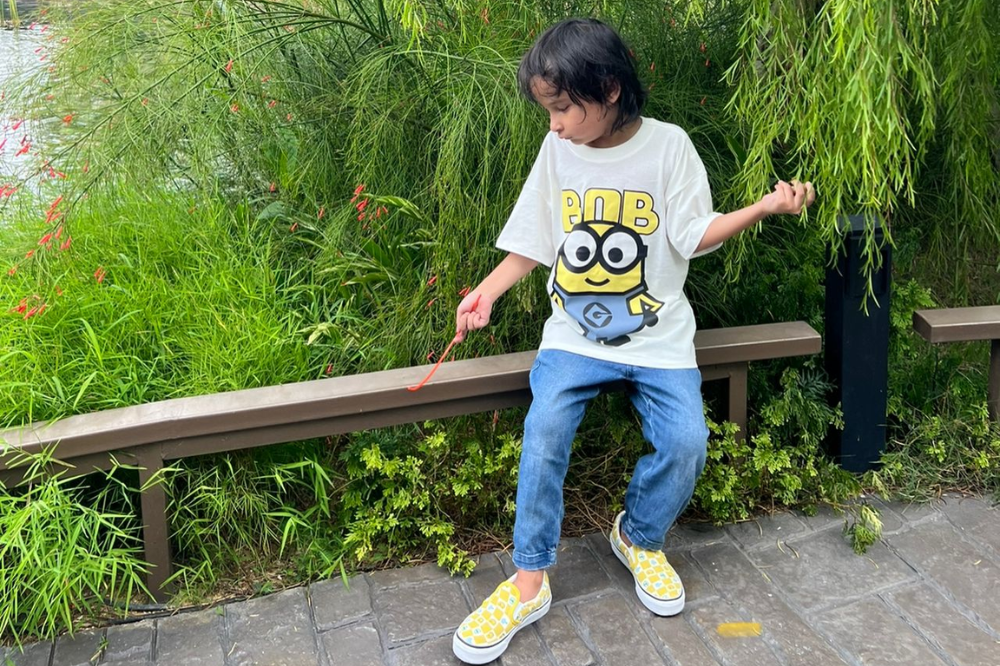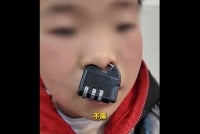Coping with an autism diagnosis as a parent: How to deal with it and thrive
"Being an autism parent is like flying a plane for the first time, without a manual, in the dark, while all the passengers tell you what you're doing wrong."

An autism diagnosis can feel like the equivalent of standing in a vast desert with no clue on how to get out of it or how to find shelter or water.
At least, that's what it felt like to me. As an autistic parent to a child with classic, non-verbal autism, I'm here to tell you: It's OK. We're OK.
A fellow autism parent shared a saying that aptly describes how bewildering it could be: "Being an autism parent is like flying a plane for the first time, without a manual, in the dark, while all the passengers tell you what you're doing wrong."
The diagnosis can be intimidating and parents are sometimes unsure of where to turn or what to do. I don’t have all the answers. But I do remember the panic, fears, denial and the distress I felt when my own son was diagnosed.
I am not here to tell you that it won't be difficult once you receive a diagnosis. But I am also here to tell you that you're going in the right direction with getting yourself or your child diagnosed.
I know now so many things I did not know then. I can honestly say that the life we are living is not that scary, once we figured out things along the way. And so here I am trying to put into words some of the things that I thought might help a parent of a child newly diagnosed with autism.
Yes there are days that will absolutely destroy you. And yes please take your time to grieve, but also take the time to learn.
I remember quite clearly in the depths of my despair, a therapist told me that for every negative unimaginable scenario, also imagine a positive scenario, where your child will get the support they need. I hold on to this.
A key word to carry with you is hope. There is hope that with time your child's social skills and training will develop. There's also hope through the immense amount of research constantly happening around autism.
Don't let the autism diagnosis intimidate you. Give yourself some time. Do some reading. Ask some questions. Do not jump to conclusions. Do not let all the doctors, therapists, educators, or the price tag that comes with autism intimidate you. One day you will look back on this and wish you could reassure yourself because you've got this.
In reality there are things so much worse than an autism diagnosis. Look around you. There are people dealing with truly tragic situations. Now, roll up your sleeves. Your role as your child's advocate is going to keep you busy.
There will good days and bad days, but do not let the autism diagnosis cripple you and leave you feeling self-conscious or paranoid.
Do understand there is no guilt to be had or blame to be placed. There is nothing you could have done differently to prevent your child's autism. I will not lie. If your child melts down, or engages in stereotypic behaviors in public, there will be stares.
There will possibly be rude questions and awkward silences. There will probably be people who think your child needs discipline when, in fact, discipline would be pointless. Don't let people who are uneducated about autism cause you to feel humiliated. Know this: It does get easier with time.
Remember the sweet baby you fell in love with is still that sweet baby, remember you are a parent first and his teacher and therapist second. Love always and love hard. Remember, your child is still a unique individual. Focus on their strengths, what they're doing well and helping with their therapies.
The awareness and research surrounding autism continue to improve along the years and as we continue to learn more about the genetics involved in autism and how to improve therapies and treatment the more these types of research can help your child over time.
I am here to tell you autism is a lifelong thing, but it does not take away the value of life your child will have.
With different kinds of therapy and interventions as well as with early prognosis, kids can learn and develop the skills they need. The earlier autism is diagnosed, the better.
Don't let the autism diagnosis isolate you. Do reach out for help. It is true that after your child is diagnosed with autism, your world may start to feel like it revolves around autism.
Don't forget about yourself, your partner and other family members. It's okay to take a step back. If you have other children, it's important to still praise them and give them attention. Make sure to take time with your significant other. You are also still human and you need to give yourself attention too.
This is the time to also build your boundaries and your focus. Don't let society tell you why this happened. Don't question yourself either, it serves no purpose. God does not "zap" families with autism because they've been "bad." Many parents of children with autism report they have become much more patient and understanding people since their child's autism diagnosis.
What has tremendously helped us as a family is maintaining a sense of humour.
You have a choice. You can dwell on all the what-ifs and the should-have-beens and become bitter or you can accept what is and look for the joyous moments around you. Having a child with autism will not suck all the fun out of life. The fact is, autism or not, kids are fun and kids say and do really funny things. Enjoy those things. Don't let autism silence the laughter in your home.
Also remember this, an autistic person does not have a damaged version of a "normal" brain. They are conceived autistic, born autistic and will live their entire lives autistic. There is no non-autistic child hiding beneath the autistic one.
And as a parent to a child who will likely need some degree of support his whole life, I can say with absolute certainty that I don't wish for a cure.
Something does desperately need to change, but it's not him. It's the way we think about autism and disability as a whole.
The world is not arranged with autism in mind. Herein lies the problem of autism being an invisible disability. The very things that make a community often don't consider accessibility beyond the wheelchair ramp.
Autism is still a wildly unknown beast, but isn't it always better to be confronted with something that you know now you can sort of go through the trenches together with your chosen community.
And I know this community well enough to say, everyone is quite supportive, so you are not alone.
If you find yourself alone, please do not hesitate to look for groups and communities which offer support, I promise you this is a gamechanger in your autism journey that will at some point affect your mental and physical health as a caregiver.
When Aydan’s diagnosis was delivered, all I wanted was another mom to understand, to talk to, to compare notes with, unfortunately for me the early days of my son's diagnosis was some of the loneliest years of my life.
Nowadays I try to be open about Aydan’s condition, to show other parents that it's okay to talk about the challenges in raising someone autistic so that the community as a whole are more aware, it is my wish to make at least small part of the world better for our neurodivergent children.
Autism needs aren't complicated, either. Often it comes down to noise, lighting, clear communication and the ability to move about freely without judgement.
Much of the information that is common knowledge about autism doesn't come from autistic people. This is where things need to change. As parents of autistic children we need to play an active role to advocate for a more accepting world.
There are still challenges once an autistic person reaches adulthood, including rampant underemployment and mental health challenges.
The voices of a community should be considered the foremost experts on the needs of the individuals within it. That is why, during this month of "autism awareness," I urge you to go a step further.
Accept that autism exists and accept that we will always be here and be part of the community. Open your mind to the feelings, thoughts and experiences of others who may not think like you. That is, after all, the very basis of empathy.
Download Sinar Daily application.Click Here!















